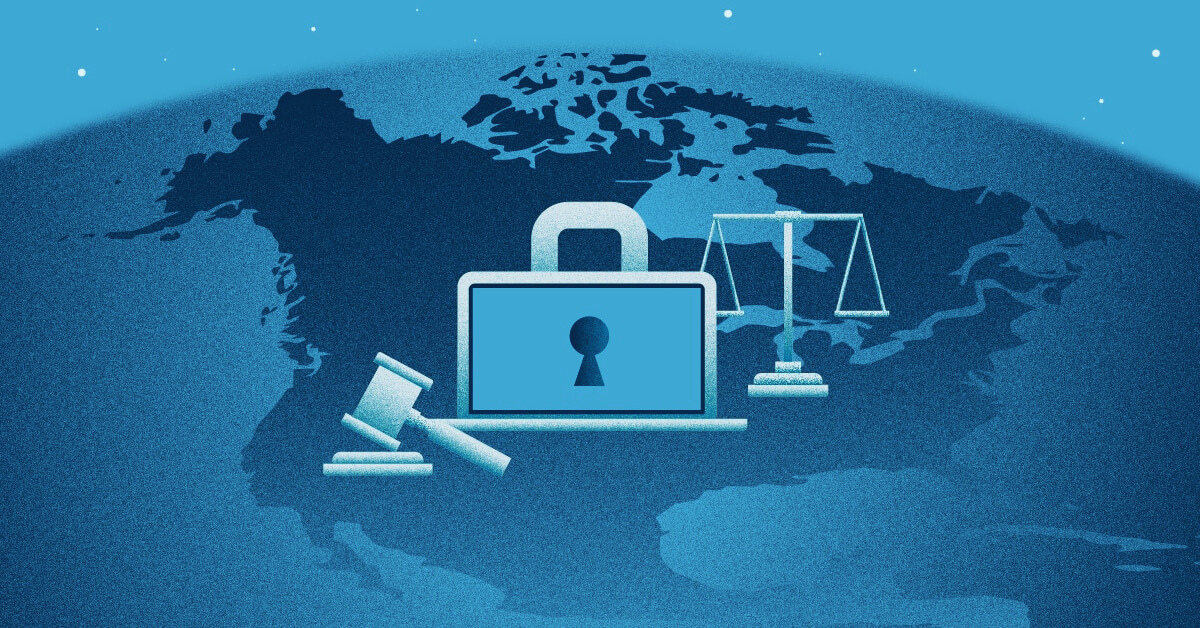In 2025, data privacy is more crucial than ever for businesses, consumers, and controllers alike. With rapid technological advancements and an increasing volume of personal data being collected, businesses are faced with the pressing responsibility of securing sensitive information. Understanding and adhering to data privacy laws is no longer optional but a vital part of commercial compliance and ethical practices.
Why Data Privacy Laws Matter for Businesses in 2025
As we enter 2025, data privacy laws have become foundational for safeguarding consumer rights and fostering trust in the digital world. Governments worldwide are recognizing the growing threats posed by cyberattacks, data breaches, and the misuse of personal information. In response, they have introduced robust data protection regulations to ensure that businesses are accountable for how they manage consumer data.

Key Global Data Privacy Regulations Businesses Must Follow in 2025
Keywords: Global data privacy laws, GDPR, CCPA compliance, LGPD, PIPL, international data protection
As of 2025, several significant data privacy laws are in place across different regions, each with specific conditions businesses must meet to stay compliant.
- General Data Protection Regulation (GDPR) – Europe’s GDPR has set the global standard for data privacy regulations. It applies to any business that processes personal data of EU residents, regardless of the company’s location. The GDPR enforces strict rules on consent, transparency, and data subject rights, with penalties for non-compliance reaching up to 4% of global profit.
- California Consumer Privacy Act (CCPA) – The CCPA gives consumers in California the right to know what personal information is being collected, access their data, and request its deletion. It also mandates businesses to allow consumers the option to opt-out of data sales. The CCPA applies to companies meeting specific criteria, such as substantial revenue or handling a large volume of personal data.
- Brazil’s General Data Protection Law (LGPD) – Brazil’s LGPD mirrors the GDPR and applies to businesses that process personal data within Brazil. It focuses on transparency, data subject rights, and requires the appointment of a data protection officer in larger organizations.
- China’s Personal Information Protection Law (PIPL) – This law is a significant step forward in China’s data privacy regulations. It applies to both domestic and international companies that handle Chinese citizens’ personal data and imposes strict requirements around consent and cross-border data transfers.
Why Data Privacy Must Be a Priority for Businesses in 2025
Keywords: Data privacy importance, cybersecurity risks, consumer trust, compliance, reputation management
- Increased Cybersecurity Risks
As cybersecurity threats evolve, businesses must protect sensitive data from breaches and hacks. Data privacy laws serve as a safeguard against unauthorized access, ensuring that both consumers and businesses are protected in the event of a breach. Cybersecurity strategies should be part of a broader data privacy policy to ensure businesses can adapt to emerging risks. - Consumer Trust and Reputation
In today’s digital age, consumer trust is paramount. Consumers are increasingly concerned about how businesses use their personal data. According to surveys, a significant percentage of consumers will only engage with companies that demonstrate robust data privacy practices. Data privacy laws build trust by holding businesses accountable for their actions and promoting transparency in how data is collected, stored, and processed. - Legal Compliance and Financial Penalties
Failure to comply with data privacy laws can lead to severe financial penalties. For instance, violations of the GDPR can result in fines of up to 4% of a company’s annual global revenue. These penalties can significantly impact a business’s financial health and brand image, making compliance crucial. - Global Expansion and Cross-Border Data Transfers
As businesses expand globally, understanding cross-border data transfers is essential. In 2025, cross-border data movement is under closer scrutiny. Many countries have specific rules governing how data is transferred internationally, and non-compliance can lead to legal action and penalties. Companies must implement systems to manage international data transfers to meet the standards set by global data privacy regulations.
Steps Businesses Must Take to Stay Compliant with Data Privacy Laws in 2025
Keywords: Data privacy compliance, data audits, security measures, consumer rights, employee training, data privacy policies
To ensure compliance with data privacy laws in 2025, businesses must take several essential actions:
- Conduct Regular Data Audits
Businesses should regularly review their data collection practices, assess what personal data is being collected, how it’s stored, and how it’s shared. Understanding the flow of personal data within an organization is critical for data privacy compliance. - Implement Strong Data Security Measures
It is vital to employ encryption, multi-factor authentication, and other security measures to protect personal data from unauthorized access. Businesses should also have a clear incident response plan in place for addressing data breaches. - Establish Clear Data Privacy Programs and Procedures
Businesses must create clear data privacy policies, outlining how data is collected, used, and shared. These policies should be communicated to customers, employees, and third-party vendors. - Offer Consumer Rights
Many data privacy laws, such as the GDPR and CCPA, grant consumers specific rights over their personal data, such as the right to access, delete, or correct their information. Businesses must establish systems to facilitate these rights and respond promptly to consumer requests. - Train Employees on Data Privacy
Employees are often the first line of defense against data breaches. Regular training on data privacy regulations and best practices can help reduce the risk of internal errors and ensure employees handle sensitive data correctly.
Data privacy laws in 2025 are not just about compliance; they’re about building a culture of trust and transparency. Businesses that prioritize data privacy will not only protect their customers and themselves from potential risks but will also gain a competitive advantage. By staying informed about the latest data protection regulations and implementing strong privacy practices, businesses can navigate the complexities of data privacy while ensuring long-term success in an increasingly data-driven world.
The evolving landscape of data privacy requires that businesses remain vigilant and proactive. By aligning with privacy laws and securing consumer data, businesses can thrive in 2025 and beyond.
